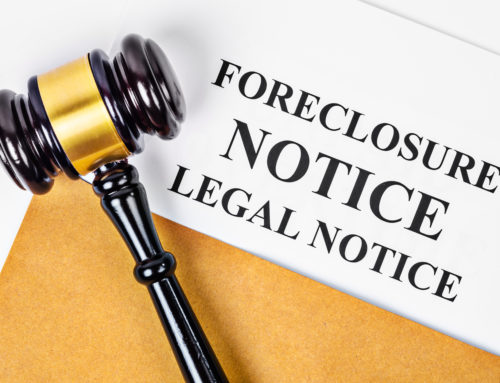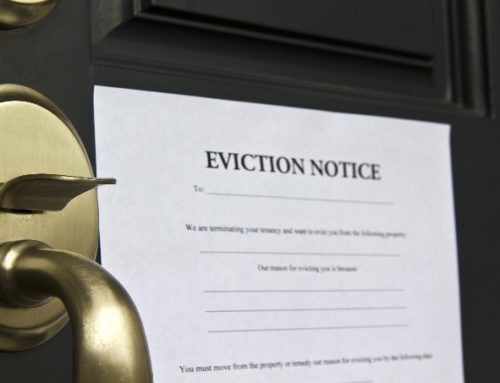There’s always a lot of talk about a borrower’s rights during a foreclosure, but what about the creditors’ rights? In New York, the mortgage lien holder for a property, along with any junior lienholders or other creditors with claim to the property, have certain legal rights during the foreclosure process. In this post, we’ll discuss creditors rights during foreclosures in New York and explain how we can help creditors recoup as many losses as possible.
Creditors’ Rights During New York Foreclosure
Right to File Foreclosure Lawsuit
If a borrower has missed at least one payment on a note for a mortgaged property, the mortgage lender must send the borrower two documents: 1) an acceleration letter and 2) a 90-day pre-foreclosure filing notice (PFN). If the borrower does not catch up with the missed payments on the note as outlined in the PFN, including any fees, by 90 days after the date of the PFN, the mortgage lender then has the right to file a foreclosure lawsuit against the borrower.
Right to Request a Summary Judgment
If the mortgage lender files a foreclosure lawsuit against a borrower and the borrower does not submit an answer to the court, or if their answer lacks legal merit in the opinion of the mortgage lender, the mortgage lender has the right to request a summary judgment. A summary judgment fast-tracks the foreclosure process and allows the mortgage lender to request that the property be assessed and auctioned without further response from the borrower. Summary judgments are only granted if the borrower has no good defense against the foreclosure, or if the borrower does not respond to the lawsuit at all (defaults).
Right to Request Full Repayment of the Mortgage Note
Once the foreclosure lawsuit is filed, the mortgage lender has the right to request only a full repayment of the note in default. Even if the borrower catches up on the missed payments, the mortgage lender does not have to accept this as reinstatement of the original note terms and can proceed with the foreclosure and auction of the property.
Right to Request Judgment of Foreclosure and Sale
Once a judge deems that a foreclosure will move forward, the mortgage lender then has the right to request a judgment of foreclosure and sale. In this request, the mortgage lender asks the court to allow the mortgaged property to be auctioned to the public in order to recover at least part of the lender’s investment. If a judge signs the judgment of foreclosure and sale, the mortgage lender must advertise the upcoming auction of the property for at least 30 days prior to the scheduled auction date. The borrower can redeem the mortgage note at any time up to the date of the auction by paying the note in full, plus any costs or fees incurred during the foreclosure proceedings.
Right to Request Documents During Discovery
If an agreement cannot be made during the mandatory pre-trial conference between the mortgage lender and the borrower, the mortgage lender then has the right to requests documents and other evidence from the borrower in preparation for upcoming trial.
Right to Bid at Auction
The mortgage lender not only has the right to bid at the property auction, but it is customary for them to make the first bid.
Right to Receive Funds From the Auction
After the auction is closed, the mortgage lender has the right to receive funds from the auction sale up to the amount of their lien on the property, plus any costs or fees approved by the foreclosure referee.
Right to Request a Deficiency Judgment
If the auction sale price is less than the mortgage lender’s lien balance on the property, the mortgage lender has the right to sue the borrower for the deficient amount. To determine the amount of deficiency, the court can use the lien balance or the fair market value of the property at the time of auction, whichever is greater.
Right to Request Surplus Funds From Sale
For secondary or junior lienholders on a property, rights to be repaid are terminated once the mortgage lender files the foreclosure lawsuit and a judgment is granted. However, if the property sales for more than the mortgage balance owed or fair market value during auction, these lienholders may make a claim for part of the surplus funds to recover part or all of their losses.
Know Your Creditor Rights to Minimize Losses
It is crucial for creditors with a claim to a property to know and understand their rights in the state of New York during a foreclosure process. While creditors are often burdened with most of the paperwork and notification responsibilities, they also have rights designed to protect their interests and minimize losses when a borrower defaults. For mortgage lenders and other creditors on Long Island, Roach & Lin, P.C. is here to help guide you through the intricacies of the foreclosure process. We specialize in helping mortgagers navigate foreclosures, bankruptcies, evictions, and more. Call us at 516-938-3100 or email info@roachlin.com to find out more about our services.





